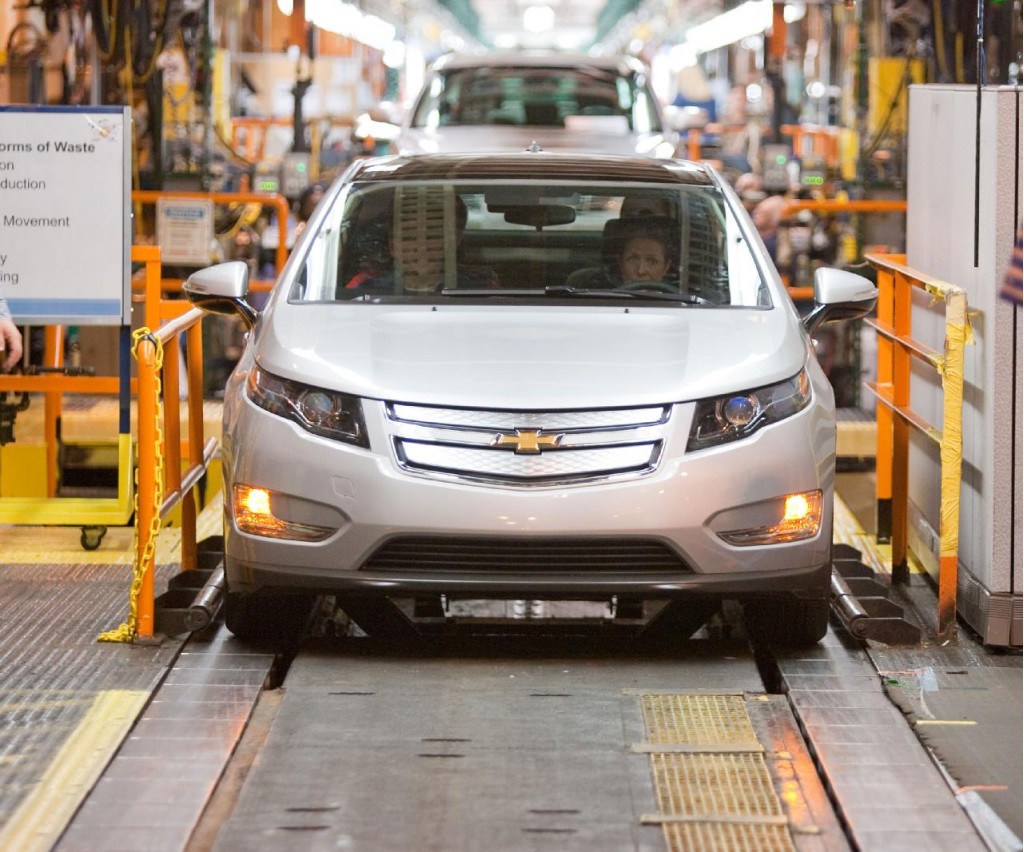It's that time of month again. Car sales reports spewed forth from the High Gear Media teletypes yesterday (September sales were up), and analysis stories followed.
On the electric-car front, Nissan sold 1,031 Leaf battery-electric vehicles and Chevy shifted 723 Volts.
While that's an improvement over last month's 302, it brings the Volt's 2011 sales total to just 3,895 (plus a further 326 last December, the month when the first Volt was delivered).
The 2011 total for the Leaf, on the other hand, is now 7,199 (plus another 19 for December 2010, which was when Nissan sold its first 2011 Leaf)--making it likely that Nissan will sell 10,000 or more Leafs by the end of December.
So with just three months remaining in 2011, it's probably time to take a serious look at the question: Does General Motors have a problem with sales of its much-publicized, often-lauded Chevrolet Volt extended-range electric car?
If you're so inclined, you can find rather a lot of angry, superficial, misinformed coverage (often in right-wing venues) proclaiming the Volt a sales disaster that virtually no one is buying. Most of them follow one or more of the following story lines:
- GM is a lousy company that makes crappy cars (used to be true, not so much now)
- The bankrupt GM didn't deserve to be restructured by the U.S. government (certainly debatable, but old history at this point)
- The Volt is a joke, because no one will ever buy electric cars, and they're another Gummint failure in the making (not true, but it will take time for this to become obvious)

First 2011 Chevrolet Volt delivered to retail buyer Jeffrey Kaffee, in Denville, NJ, December 2010
A more nuanced treatment comes from our friends at Jalopnik, who raised the question and left it open yesterday. Consider this article a response to their musings.
But indeed, if you look at Volt sales--especially in comparison to the Nissan Leaf electric car--the tally is hardly impressive. The Leaf is now frequently selling 1,000 or more per month, whereas the Volt has never hit that number.

John Duncan takes delivery of one of the first 2011 Nissan LEAF EVs, near Portland OR, 12/15/2010
As we often point out, there are reasons for the lower Volt sales total, including GM's summer shutdown of its Detroit-Hamtramck assembly plant for retooling over four weeks just as Volt sales began to climb in the spring.
But the plant restarted before Labor Day, so production should be climbing, yet sales appear to remain anemic. General Motors, however, has stayed publicly confident. Part of the sales delay, it says, has to do with refilling the pipeline.
GM spokesman Rob Peterson--who's been with the Volt program for years--notes that all Volts are trucked to the primary markets of California and New York, saying, "At any given time, one third of our Volts are on the road in transit."

First 2011 Chevrolet Volt built on production tooling at Detroit Hamtramck plant, March 31, 2010
Here's how Peterson lays out Chevy's plan for the 16,000 Volts it says it will build during calendar 2011:
- 10,000 deliveries for retail and fleet sales in the U.S. market
- 2,500 demonstrators that Chevrolet dealers cannot sell
- 3,500 delivered outside the U.S. to Canada, Europe (as the Opel/Vauxhall Ampera), and China
But we're left with the math: To hit 10,000 U.S. sales for 2011, GM must sell more than 2,000 Volts a month--on average--in October, November, and December.
There you have it, GM. Show us the sales. You have three months.
+++++++++++













